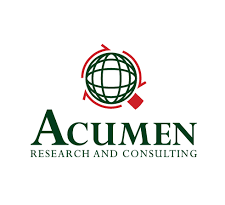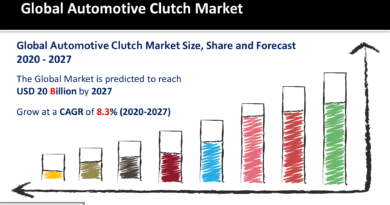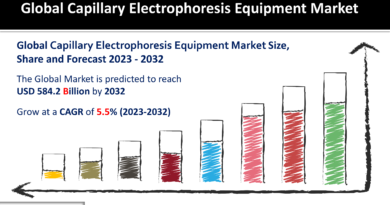Non-Alcoholic Beverages Market USD 1,473.7 Billion in 2032
The Non-Alcoholic Beverages Market Size made up for USD 813.3 Billion in 2022 and is estimated to reach a market cap USD 1,473.7 Billion by 2032 expanding at 6.3% CAGR, between 2023 and 2032.
Introduction:
The global non-alcoholic beverages market has undergone significant transformation in recent years, fueled by shifting consumer preferences, health consciousness, and innovative product offerings. In this article, we will delve into the current market trends, drivers, restraints, opportunities, regional market insights, competition scenario, and the exciting potential for future growth in the non-alcoholic beverages sector.
Download Free Non-Alcoholic Beverages Market Sample Report Here: (Including Full TOC, List of Tables & Figures, Chart)https://www.acumenresearchandconsulting.com/request-sample/3252
Current Market Trends:
- Health and Wellness Boom: One of the dominant trends in the non-alcoholic beverages market is the growing demand for healthier options. Consumers are increasingly seeking beverages that are low in sugar, calories, and artificial additives. This has led to the rise of natural and functional beverages such as herbal teas, infused water, and probiotic drinks.
- Premiumization: Premium non-alcoholic beverages are gaining traction as consumers are willing to pay more for high-quality products. Craft sodas, artisanal fruit juices, and exotic flavor combinations are becoming more popular, catering to a discerning audience looking for unique taste experiences.
- Sustainability: Eco-conscious consumers are driving the demand for sustainable packaging and production practices. Companies are responding by adopting recyclable materials, reducing carbon footprints, and implementing ethical sourcing methods.
- E-Commerce and Direct-to-Consumer (DTC): The convenience of online shopping has not spared the non-alcoholic beverages market. Many brands are establishing their online presence and offering DTC sales, allowing consumers to access a broader range of products and flavors.
Market Drivers:
- Health Awareness: As individuals become more health-conscious, they are actively seeking non-alcoholic alternatives to traditional sugary sodas and alcoholic beverages. This trend is bolstered by a rising prevalence of lifestyle-related health conditions.
- Innovations: Beverage manufacturers are investing in research and development to introduce novel flavors, functional beverages, and innovative packaging, thereby enticing consumers to explore new options.
- Urbanization: The global urban population is growing steadily, leading to busier lifestyles. Non-alcoholic beverages like energy drinks, ready-to-drink teas, and functional waters are gaining popularity among urban consumers seeking quick refreshment.
- Cultural Shifts: Cultural changes, such as a decline in alcohol consumption among millennials and Gen Z, are influencing the rise of non-alcoholic social alternatives. This shift is expected to continue as younger generations prioritize health and well-being.
Market Restraints:
- Health Concerns: Despite the trend towards healthier beverages, concerns about the sugar content and artificial additives in some non-alcoholic drinks persist, which can hinder growth.
- Regulatory Challenges: The non-alcoholic beverage industry is subject to various regulations, including labeling requirements and health claims, which can impact product development and marketing strategies.
Opportunities:
- Functional Beverages: There is a vast opportunity in the development of functional beverages that cater to specific health needs, such as immune support, stress relief, and gut health.
- Niche Markets: Exploring niche markets like organic, vegan, and non-GMO beverages can be profitable as consumers seek more specialized options.
- Regional Expansion: Emerging markets in Asia, Latin America, and Africa offer untapped potential due to rising disposable incomes and urbanization.
Regional Market Insights:
- North America: The North American market is characterized by a strong demand for healthier beverage options, including plant-based and functional beverages. Craft and premium segments are thriving.
- Europe: Europe has a mature non-alcoholic beverage market, with a focus on natural and organic products. Sustainable practices and clean labeling are essential here.
- Asia-Pacific: Rapid urbanization and a growing middle class are driving the non-alcoholic beverage market in Asia. Innovative flavors and packaging are key drivers in this region.
Competition Scenario:
Major players in the non-alcoholic beverage market include The Coca-Cola Company, PepsiCo, Nestlé S.A., and Keurig Dr Pepper Inc. These industry giants continue to innovate and expand their product portfolios to meet changing consumer preferences.
Future Market Growth Potential:
The non-alcoholic beverages market is poised for robust growth in the coming years. With consumers increasingly prioritizing health, sustainability, and unique flavor experiences, the industry has ample room for innovation and expansion. As global urbanization continues, emerging markets will become pivotal for the growth of the non-alcoholic beverage sector. Functional and premium beverages, along with sustainable practices, are expected to shape the future of this dynamic industry.
The non-alcoholic beverages market is witnessing a remarkable transformation driven by evolving consumer preferences and a commitment to healthier, more sustainable choices. The industry’s future appears promising, with opportunities for both established players and emerging brands to thrive in this dynamic landscape.
Buy the premium market research report here:https://www.acumenresearchandconsulting.com/buy-now/0/3252
Find more such market research reports on our website or contact us directly
Write to us at sales@acumenresearchandconsulting.com
Call us on +918983225533
or +13474743864



